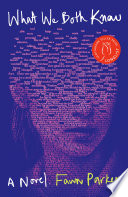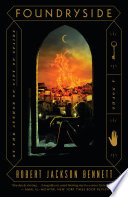 What We Both Know by Fawn Parker
What We Both Know by Fawn Parker Published by McClelland & Stewart on May 3, 2022
Genres: Literary Fiction
Pages: 248
Source: Received from publisher
Goodreads

2022 Scotiabank Giller Prize Longlist
For readers of My Dark Vanessa, a mesmerizing, disturbing, and thoroughly compelling novel about one woman’s role in preserving—or destroying—her famous father’s legacy.
In front of me are hundreds of pages of work. Already I feel it leaving me. He will obliterate what is there, replace it, deny I ever wrote a word. But, he cannot take the words I write on my own.
Hillary Greene’s father, once a celebrated author and public figure, is now losing his memory and, with it, his ability to write. As her father’s primary caretaker, each day begins with two eggs, boiled and Charlie Rose or some other host on the iPad screen. Her father compulsively watches himself in old interviews, memorizing his own speech, trying to hang on to who he was.
An aspiring author herself, Hillary impulsively agrees to ghost-write his final work—a memoir spanning his career—and release it in his name. Diving deep into her father’s past, and in turn her own, a horrifying truth begins to piece itself together.
With full control over her father’s memoir, Hillary is faced with a stark choice: reveal her father as a monster or preserve his legacy as a respected literary figure. But she wonders what writing the truth will do to her and if it will damage her own prospects for a career. Whichever option she chooses, Hillary has to deal with the significant pain writing the memoir has re-surfaced—specifically, how the truth about her father adds to her grief over the death of her enigmatic sister, Pauline. For the first time in her life, Hillary holds the power.
Set in the wake of the #MeToo and Time’s Up movements, What We Both Know is a visceral, intimate, and complex novel about confronting the personal and professional consequences—and potentially devastating fallout—of revealing the truth about a famous man.
 Foundryside by
Foundryside by 